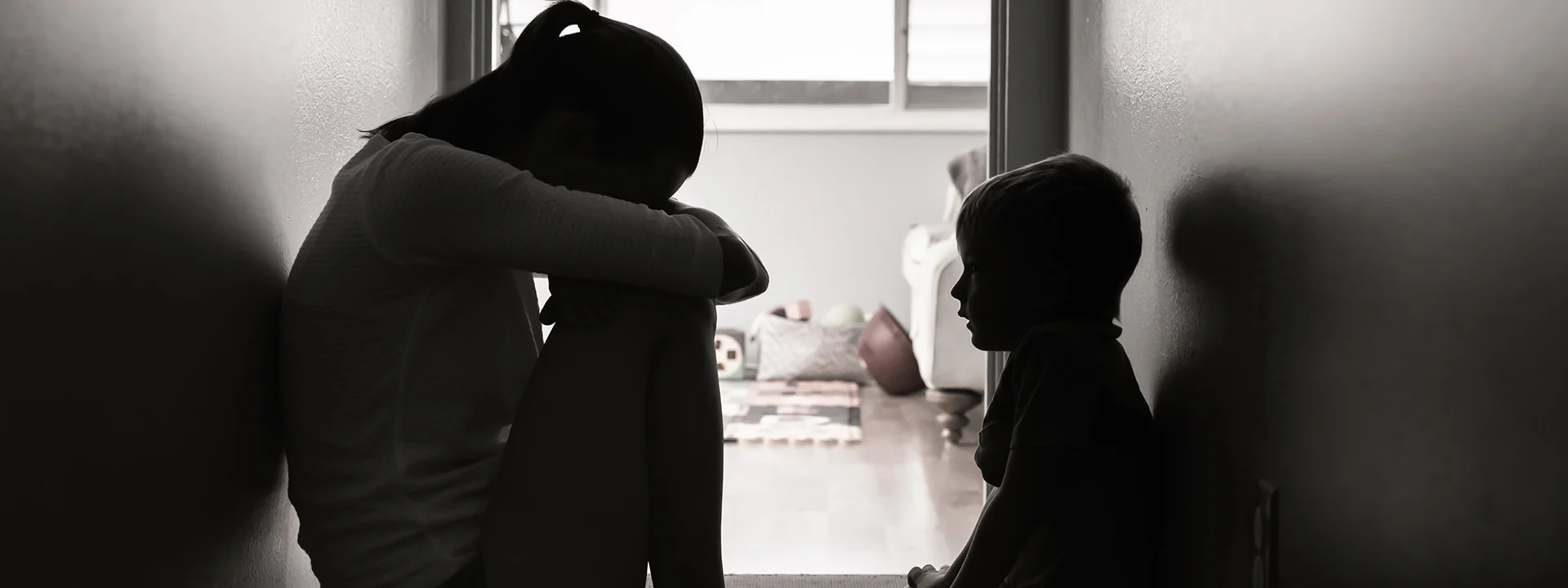
Research or Regress
What if parenting wasn’t so stressful?
Parenting is one of life’s toughest jobs. Penn State’s positive parenting program helps build a strong foundation for a happier, healthier family.
Parenting is tough. It's not just the sleepless nights with a new baby or the daily demands of a growing child. It's also the parenting stress and conflict that comes with navigating a new family dynamic. This tension can be particularly difficult for parents facing additional hurdles, such as navigating the special education system for their child.
Melanie Roy knew this challenge firsthand. She understood that getting an individualized education program (IEP) and managing the associated services for her child could be complicated and stressful. When she saw a social media post for a Penn State program designed to support parenting partners through tough times, she decided to apply.
The Family Foundations program changed my life and my partner’s life because it gave us the skills to support each other and our child."
Melanie Roy
The Challenge: Strengthening the Co-Parenting Team
Mark Feinberg, a Penn State research professor in health and human development, remembers the challenges of raising young children. As a new parent, he noticed a lack of resources for parents to work together as a team. Yet, his research revealed a powerful truth: the relationship between parents has a significant influence on both parents' own well-being and a child’s.
“It’s harder to handle the frustrations of raising a child when you feel parental stress and anxiety. When parents work together, they cope better. That makes it easier to be a warm and nurturing caregiver,” he said.
Building a Stronger Family Foundation
To address this need, Feinberg created Family Foundations, a new kind of positive parenting program that focuses on the core of the family—the co-parenting relationship. The program helps parents prepare for and overcome the unique challenges different families may encounter by teaching them how to have difficult conversations, problem-solve, and make decisions together.
The original program was designed for pregnant, first-time parents as a series of nine, two-hour classes that focus on building a team approach to positive parenting. Through exercises, group discussions, and breakout sessions, participants learn how to have difficult conversations, problem-solve, and make decisions together. They also explore how they each feel about becoming a parent and what they can do to support each other. Then, they practice these skills, building their confidence.
"The biggest, strongest influence you can have on your child is through the co-parenting relationship—the way you coordinate and support each other regardless of your relationship status as married, romantically involved, separated, and so on," Feinberg said.
Based on its success, Feinberg and his colleagues created different versions of Family Foundations for low-income parents, teen parents, military families, parents of children with autism, and parents like Melanie Roy, who are navigating the special education system. The program has also been translated into multiple languages and used in several countries around the world.
Research Makes Families Stronger
For over two decades, Family Foundations has demonstrated positive long-term outcomes for families through randomized controlled trials, thanks to funding from the National Institutes of Health.
The research shows less parenting stress and conflict, better mental health for parents, and greater family relationship quality. The positive effects extend to children as well, who have shown greater emotional, social, and academic well-being through at least age ten. In other words, families thrive.
For Roy and her partner, the program was life-changing. They learned to identify their individual strengths and roles, better understand their child’s emotional needs, and work together to advocate for the services their child needed.
"The Family Foundations program changed my life and my partner’s life," Roy says, “because it gave us the skills to support each other and our child."
This is Penn State Research

What happens if it stops?
Learn more about the implications of federal funding cuts to your future.
